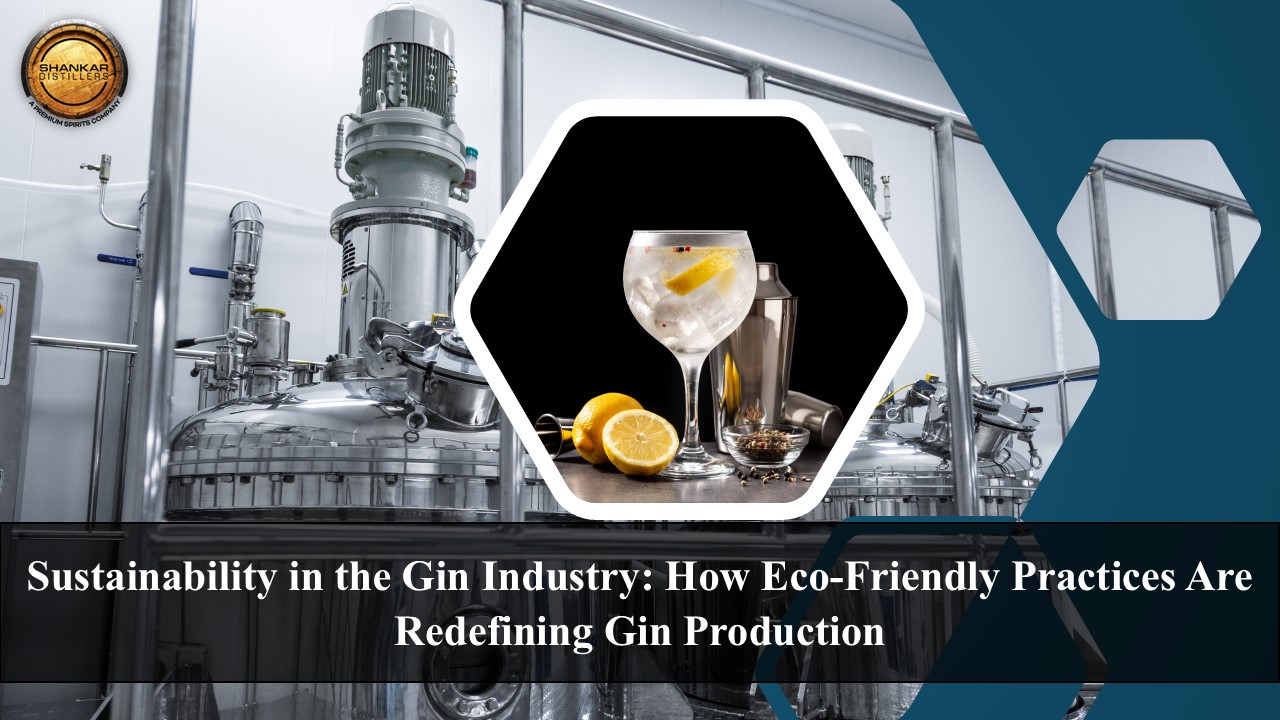Sustainable Sourcing in Gin Production - PowerPoint PPT Presentation
Title:
Sustainable Sourcing in Gin Production
Description:
Sustainability begins at the source for many gin producers, who are adopting responsible practices for sourcing botanicals. Distilleries partner with local farmers using regenerative agriculture, minimizing transportation emissions. These eco-conscious efforts align with the broader industry's shift towards environmentally friendly production. Consumers increasingly seek premium, sustainable spirits, making these practices essential for the future of gin production. – PowerPoint PPT presentation
Number of Views:0
Title: Sustainable Sourcing in Gin Production
1
Sustainability in the Gin Industry How
Eco-Friendly Practices Are Redefining Gin
Production
2
As global industries increasingly prioritize
sustainability, the gin sector is making strides
in reducing its environmental impact. From
botanical sourcing to distillation processes, gin
producers are embracing eco-conscious practices
that align with the growing demand for
sustainability. This shift reflects broader
trends seen across the spirits industry,
including among Whiskey Companies in USA, who are
also adopting environmentally friendly measures.
However, the gin industry offers unique
opportunities for sustainable innovation, given
the diversity of ingredients and production
techniques involved. One brand exemplifying this
shift is Dasara Gin from Shankar Distillers,
which integrates eco-friendly methods throughout
its production process. Like many modern
distilleries, Shankar Distillers - USA's Premier
Whiskey Distillery has embraced practices that
not only minimize environmental impact but also
ensure the future of the industry by maintaining
biodiversity and reducing carbon footprints.
3
Sustainable Sourcing of Botanicals A key
component of gin production is its reliance on
botanicals, which provide the distinctive flavors
and aromas that define each brand. Traditionally,
these botanicals were sourced without much
consideration of environmental impact. However,
in recent years, gin producers have begun to
adopt more sustainable approaches. This includes
working with farmers who use organic and
regenerative agriculture practices, reducing
reliance on synthetic fertilizers and
pesticides. By promoting biodiversity and
conserving water resources, sustainable sourcing
helps protect the natural environments where
botanicals thrive. Moreover, distilleries are now
partnering with local suppliers to reduce
transportation emissions, further contributing to
their eco-friendly ethos. Brands like Dasara Gin
are at the forefront of this movement,
emphasizing local sourcing and responsible
farming techniques to ensure the longevity of the
ingredients that make their products unique.
4
Eco-Friendly Distillation Techniques Distillation
is another area where gin producers are making
significant sustainability improvements.
Traditionally, the process of distilling gin is
energy-intensive, requiring substantial amounts
of heat and water. However, many distilleries are
now turning to renewable energy sources, such as
solar or wind power, to reduce their carbon
emissions. Additionally, innovations in
distillation equipment allow for more
energy-efficient production, minimizing waste
heat and conserving water. Some distilleries are
also adopting closed-loop systems that recycle
water and reduce the overall environmental
footprint of the distillation process. This is
particularly important given the vast quantities
of water needed for cooling and steam generation
in traditional gin production. With these
advancements, distilleries like Shankar
Distillers - premium spirits company USA are
leading the charge toward a more sustainable
future for the spirits industry.
5
Packaging and Waste Reduction Sustainable
packaging is another critical focus for gin
producers committed to environmental
responsibility. Many distilleries are moving away
from single-use plastics and opting for
recyclable or biodegradable materials for their
bottles, labels, and packaging. In some cases,
brands are even experimenting with refillable
bottles to reduce waste further. Waste reduction
efforts extend beyond packaging to the production
process itself. Some distilleries are finding
innovative uses for by-products of the gin-making
process, such as turning spent botanicals into
compost or using them in other products like
flavored tonics. These initiatives not only
reduce waste but also contribute to a more
circular economy, where resources are continually
reused and repurposed.
6
- Conclusion
- The gin industry is undergoing a transformation
as producers adopt sustainable practices to
reduce their environmental impact. From sourcing
botanicals responsibly to implementing
energy-efficient distillation techniques and
reducing packaging waste, these efforts are
redefining how gin is made. Brands like Shankar
Distillers - Premium whiskey distillery exemplify
the shift towards eco-friendly production,
ensuring that gin lovers can enjoy their favorite
spirits while supporting a more sustainable
future. - Useful Links
- Premium Vodka
- Bourbon recipes
- Resources
7
Thank You
Follow us on
Be the first to comment on this presentation.

